When I first decided to upgrade my bathroom, the countertops were one of the key elements I focused on. Modern bathroom countertops are not just functional surfaces; they are a vital part of the overall aesthetic and design of the space. They set the tone for the bathroom, acting as both a practical workspace and a focal point. The options available today are vast, offering a range of materials, finishes, and styles that can transform a mundane bathroom into a luxurious retreat. Choosing the right countertop involves more than just picking a pretty surface; it’s about balancing style, durability, and maintenance to create a space that will serve you well for years to come.
One of the first decisions I had to make was selecting the material for my countertops. Modern bathroom countertops can be made from a wide variety of materials, each with its pros and cons. Natural stone options like granite and marble are popular for their timeless beauty and durability. Granite, for example, is incredibly durable and resistant to scratches and heat, making it a practical choice for busy bathrooms. Marble, on the other hand, offers a more luxurious, classic look but is more prone to staining and requires more maintenance. I considered these options carefully, weighing the beauty of marble against the practicality of granite. Ultimately, I chose quartz for its balance of aesthetics and low maintenance.
Quartz has become one of the most popular choices for modern bathroom countertops due to its durability and versatility. Unlike natural stone, quartz is an engineered material, which means it’s made by combining ground quartz with resins and pigments. This process creates a non-porous surface that is highly resistant to stains, scratches, and bacteria—ideal for a bathroom environment. Quartz countertops come in a wide range of colors and patterns, many of which mimic the look of natural stone. I found that quartz offered the best of both worlds: the beauty of natural stone with the added benefits of durability and ease of maintenance.
Another modern option I considered was solid surface countertops, made from a blend of acrylic and polyester. Solid surfaces are known for their seamless appearance, as they can be fabricated without visible seams, creating a sleek, modern look. They are also non-porous, making them resistant to stains and easy to clean. One of the unique advantages of solid surface countertops is that they can be easily repaired if scratched or damaged. A quick sanding can usually restore the surface to its original condition. I was attracted to the seamless look and the possibility of custom shapes and integrated sinks, but in the end, I decided that quartz offered a more natural aesthetic that suited my design vision.
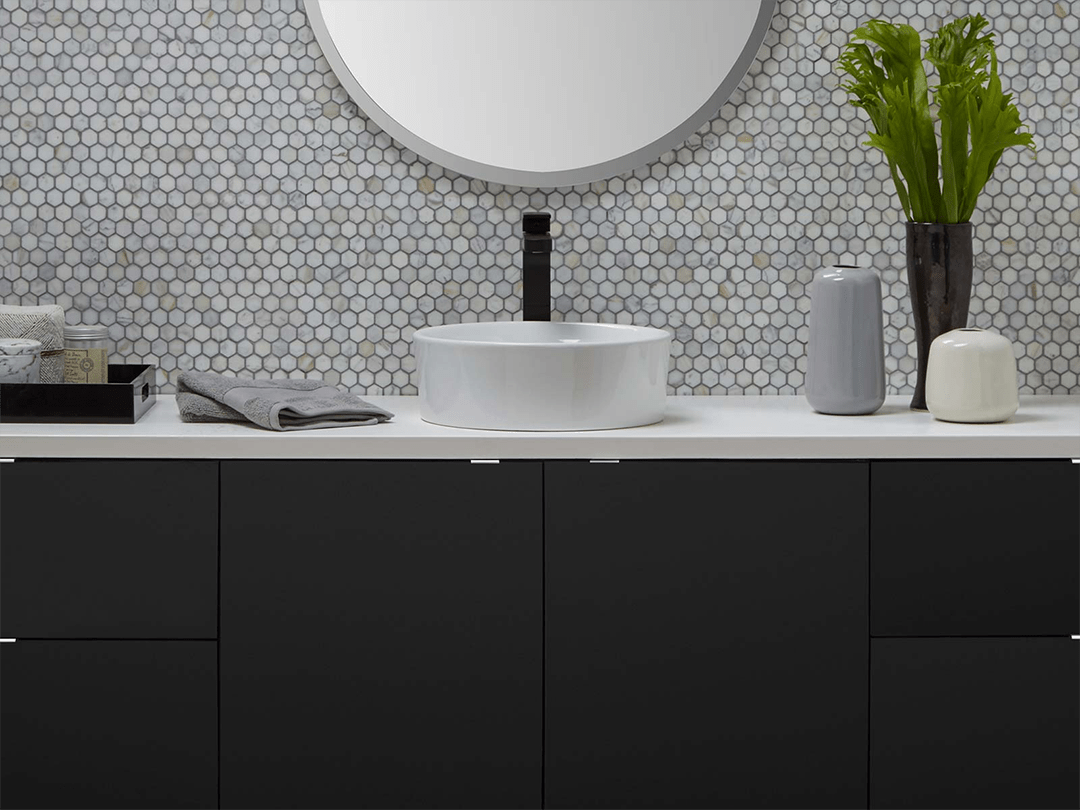
Concrete countertops are another modern trend that has gained popularity in recent years. These countertops offer a unique, industrial look that can be customized with different textures, colors, and finishes. Concrete is incredibly versatile, and its raw, earthy appearance can add a distinctive, modern edge to any bathroom. However, concrete countertops require sealing to prevent staining, and they can be prone to cracking if not properly maintained. I considered concrete for its edgy, modern appeal but ultimately decided it was too high-maintenance for my needs. Still, for those looking to make a bold statement, concrete can be an excellent choice.
The finish of the countertop is another important consideration. Whether you choose a polished, honed, or textured finish can dramatically affect the overall look and feel of your bathroom. A polished finish offers a shiny, reflective surface that can make a small bathroom appear larger and brighter. On the other hand, a honed or matte finish provides a more understated, soft look that can add warmth and subtlety to the space. I opted for a polished finish for my quartz countertops to enhance the brightness of my bathroom, but I can see how a matte finish would be appealing in a space with more natural light or a more rustic design.
Choosing the right edge profile is another critical aspect of designing modern bathroom countertops. The edge profile can add character and style to the countertop, with options ranging from simple straight edges to more elaborate ogee or bullnose profiles. I found that a straight edge offered a clean, modern look that complemented the overall design of my bathroom. However, for those looking to add a touch of elegance, a more decorative edge profile could be the perfect choice.

One of the most exciting aspects of modern bathroom countertops is the ability to incorporate custom features that enhance both the functionality and aesthetics of the space. Integrated sinks, for example, offer a seamless transition between the countertop and the sink, creating a sleek, minimalist look. This was a feature I seriously considered, as it eliminates the need for a separate sink, making the countertop easier to clean and maintain. Other custom features like built-in soap dishes, drainboards, or even embedded lighting can add a unique touch to your bathroom countertops.
When it comes to modern bathroom countertops, size and layout are also crucial considerations. The size of the countertop should be proportionate to the size of the bathroom. In a small bathroom, a large, overbearing countertop can make the space feel cramped, while a countertop that’s too small can look out of place and offer insufficient workspace. I spent a lot of time measuring and re-measuring my bathroom to ensure the countertop I chose would fit perfectly within the space, providing ample surface area without overwhelming the room.
Installation is another key phase in the process. Installing bathroom countertops is not a simple task and requires professional expertise to ensure everything fits correctly and looks as intended. Any errors in measurement or cutting can result in gaps, uneven surfaces, or even damage to the countertops or surrounding areas. I hired a professional installer to ensure that my countertops were installed correctly and to avoid the stress and potential mistakes of attempting a DIY installation. The peace of mind that came with knowing the job was done right was well worth the investment.
Maintenance is an important factor to consider when selecting modern bathroom countertops. Some materials, like quartz and solid surfaces, are low-maintenance and easy to clean, while others, like marble, require more care. Understanding the maintenance requirements of your chosen material will help ensure that your countertops remain beautiful and functional for years to come. I made sure to research the care instructions for quartz before making my final decision and have found it to be very manageable with just regular cleaning and occasional sealing.
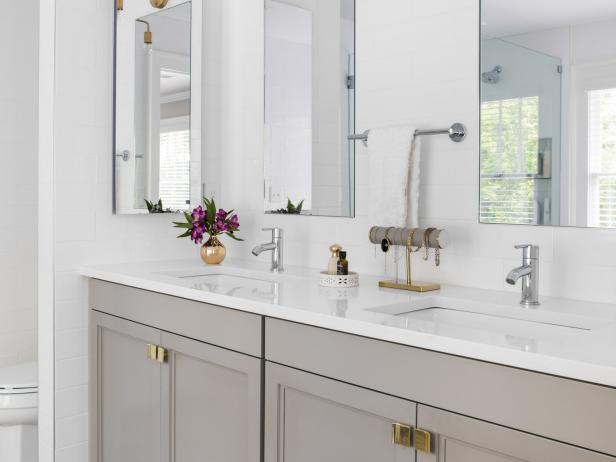
Durability is another critical aspect when choosing bathroom countertops. The bathroom is a high-traffic area exposed to moisture, heat, and various toiletries, so your countertops need to be able to withstand these conditions. Materials like quartz and granite are known for their durability and resistance to scratches and heat, making them ideal for a busy bathroom. I chose quartz for its excellent durability, and so far, it has stood up well to the daily wear and tear of my bathroom routine.
The color and pattern of your countertops should complement the overall design of your bathroom. Neutral tones like white, gray, and beige are popular choices for modern bathrooms, as they offer a clean, timeless look that can easily be updated with accessories and other decor. I opted for a light gray quartz countertop that adds a touch of sophistication while keeping the space bright and airy. However, for those looking to make a bold statement, darker tones or more dramatic patterns can create a striking focal point in the bathroom.
Sustainability is an increasingly important consideration for many homeowners when selecting bathroom countertops. Eco-friendly materials like recycled glass, bamboo, and certain types of quartz made with sustainable practices offer a way to reduce your environmental footprint while still achieving a modern, stylish look. While I didn’t choose an eco-friendly option for my countertops, it’s something I would consider for future projects, especially as more sustainable options become available.
Finally, modern bathroom countertops are an investment that can add significant value to your home. A well-designed bathroom with high-quality countertops can enhance the overall appeal of your home, making it more attractive to potential buyers. Even if you’re not planning to sell anytime soon, knowing that your investment will pay off in the long run is a comforting thought. I kept this in mind when selecting my countertops, knowing that they would not only improve my daily life but also add to the value of my home.
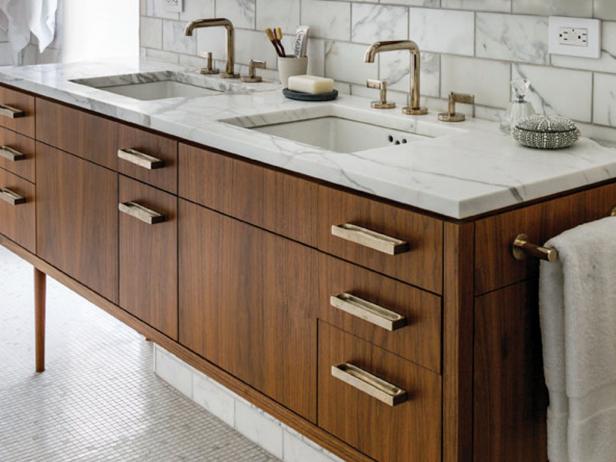
Common Mistakes to Avoid
When choosing modern bathroom countertops, there are several common mistakes that I’ve noticed people often make. First, not fully considering the material’s maintenance requirements. Some materials, like marble, are beautiful but require regular sealing and careful maintenance, which may not be practical for everyone. Another mistake is choosing a countertop that is either too large or too small for the space, which can throw off the balance of the bathroom.
Overlooking the importance of professional installation can also lead to issues, such as gaps or uneven surfaces. Additionally, not considering how the countertop’s color and finish will coordinate with the rest of the bathroom can result in a disjointed look. Lastly, failing to factor in the long-term durability and potential for future repairs can lead to regret down the line.
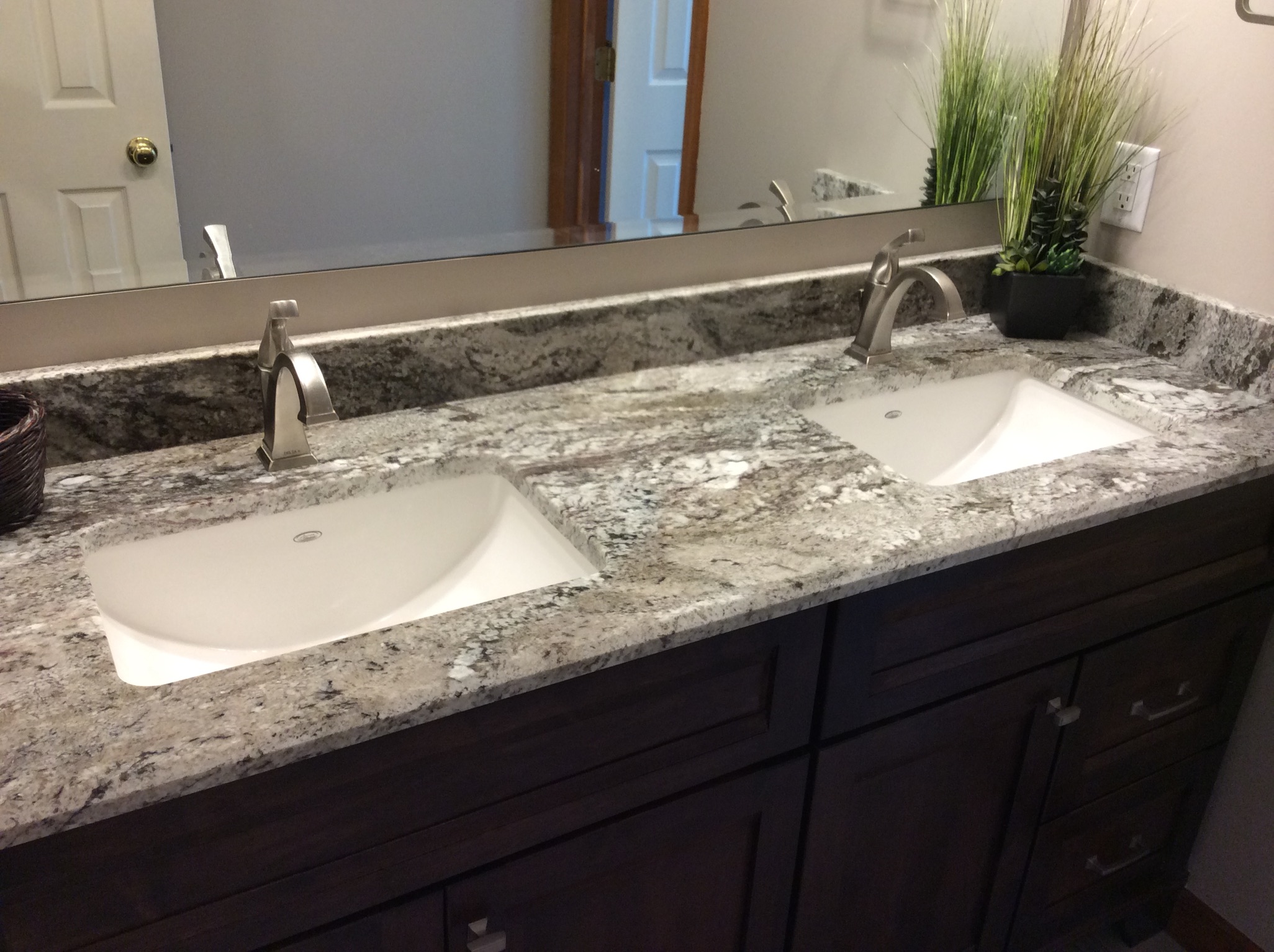
What is the most durable material for modern bathroom countertops?
Quartz is one of the most durable materials for modern bathroom countertops. It is non-porous, resistant to stains, scratches, and heat, making it ideal for high-traffic areas like bathrooms. Granite is also highly durable, though it requires regular sealing. I chose quartz for my bathroom because it combines durability with low maintenance, which has been a great fit for my lifestyle.
How do I choose the right size for my bathroom countertop?
The right size for your bathroom countertop depends on the size of your bathroom and how you intend to use the space. The countertop should be proportionate to the room, offering enough surface area for daily tasks without overwhelming the space. I measured my bathroom carefully and opted for a countertop that provided ample workspace without crowding the room, ensuring both functionality and balance.
Are there low-maintenance options for modern bathroom countertops?
Yes, quartz and solid surface countertops are among the most low-maintenance options available. Quartz is non-porous, which means it doesn’t require sealing and is easy to clean with just soap and water. Solid surfaces are also non-porous and can be easily repaired if scratched. I chose quartz for its ease of maintenance, and it has been very convenient in my daily routine.

Can I install bathroom countertops myself?
While it’s possible to install bathroom countertops yourself, it’s generally recommended to hire a professional. The installation requires precise measurements and cutting, and any mistakes can lead to significant issues, such as gaps or uneven surfaces. I decided to work with a professional installer for my bathroom countertops, and the result was a perfect fit that I couldn’t have achieved on my own.
What are the most popular colors for modern bathroom countertops?
Neutral colors like white, gray, and beige are the most popular choices for modern bathroom countertops because they offer a clean, timeless look that can easily be updated with other elements of the decor. I chose a light gray quartz countertop for my bathroom, which adds a touch of sophistication while keeping the space bright. For those looking for something bolder, darker tones or more dramatic patterns can also be very effective.
Are there eco-friendly options for modern bathroom countertops?
Yes, there are several eco-friendly options available for modern bathroom countertops. Materials like recycled glass, bamboo, and some types of quartz are made with sustainable practices, reducing environmental impact while still offering a modern, stylish look. Although I didn’t choose an eco-friendly countertop for my bathroom, it’s an option I would seriously consider for future renovations, particularly as more sustainable choices become available.
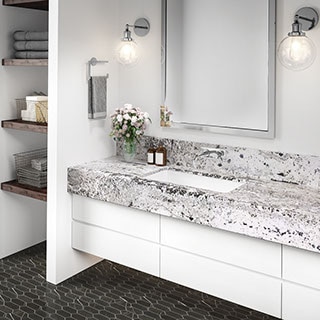
Modern Bathroom Vanities Concrete bathroom design, Bathroom

Bathroom Countertops – How to Choose the Right One Caesarstone
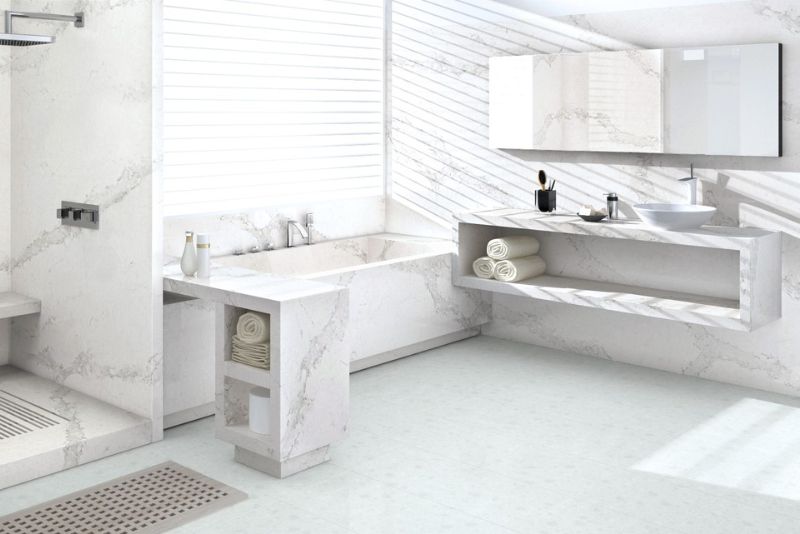
Related articles: